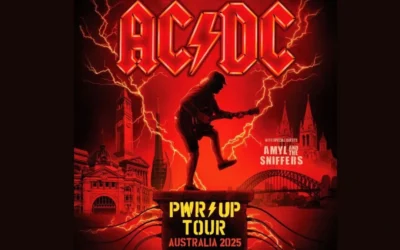While the company may reach its lowered fiscal projections this year, Live Nation, the world’s largest concert promotion and ticketing company, is looking to lower costs for 2011, and chief among its moves to achieve that will be to pay the artists it promotes less money.
During a Bank of America Merrill Lynch Media, Communications and Entertainment Conference Thursday, September 16, Live Nation President and CEO Michael Rapino told the audience of investors that the decrease in concert ticket sales in 2009 should have been a wake up call to artists and their managers and agents that the big, up-front paydays of the past are over.
“Going into 2010, we didn’t expect the consumer pull back that happened [in concert ticket sales],” Rapino said, in part because the company made money in 2009 during the throes of the recession. “We all thought that the theory that concerts are recession proof is true.”
While he would not disclose which bands will be offered less money, or the amounts being negotiated, Rapino said the number one topic being discussed by industry insiders is how prices can be lowered in order “to fill the house.”
“Have we started [negotiations] by saying we’re not going to pay you that much because we don’t feel we can sell enough tickets at that amount? And, is that leading to us getting some push back [from artists]? Yes. But, are we getting closer to the deals we want? Yes,” Rapino said. The company will concentrate on more “high margin” arena and amphitheater shows with major acts, which could mean mid-range acts could get squeezed.
While artists might not be happy with the move – since most music acts generate the lion share of their revenues through touring – fans and Live Nation investors will likely cheer the plan because it could lead to lower ticket prices and improved profits. Earlier this month, influential media and entertainment analyst Ben Mogil with Stifel, Nicolaus & Company lowered his rating of the company, in part because of concerns that Live Nation was spending too much on artist guarantees. The move led to an immediate sell off, and drop in price, of Live Nation’s stock, which trades under the symbol LYV.
“2011 will be less about growing market share and more about profitability,” Rapino said. He added that the company is looking to acquire more international artist management firms through its Front Line Management division to help grow Live Nation’s international business, particularly in Spain, France, Brazil and Latin America.
The company also is missing out on millions of dollars worth of additional sales through its Ticketmaster.com Web site, and according to Rapino, the company is planning changes to capture that revenue.
Those plans are part of the company’s attempts to improve the consumer experience on the Web site, and will start with a simple addition: a shopping cart. Currently, Ticketmaster.com is the country’s third-largest online retail site, which processes about $8 billion worth of transactions annually, Rapino said. Customers, on average, spend about $163 per transaction.
Yet, all of those transactions are for tickets, and without an online shopping cart that customers can fill with T-shirts or other merchandise, the company loses opportunities to “up sell” more items and generate more revenue. Since the company’s up sells are currently zero, an increase of 1 percent would have an impact on Live Nation’s bottom line, Rapino said.
“We should be like Amazon.com,” Rapino said. “Our belief from day one was that in music, to survive we couldn’t just be a ticket company or promoter, we had to be an e-retail, front-door marketing company.”
Live Nation has seen its sponsorship revenues increase in the past year, Rapino said, and he is hoping to leverage those deals by adding the ability for customers to book hotel and airline reservations, to accompany concert ticket sales, through the Ticketmaster.com site.
The consumer-friendly approach helped lead to the company’s recent deal with Apple to power the computer and consumer electronics company’s ticket sales through Apple’s new Ping social network.
“We’ve got to reach more people and become more efficient in how we sell tickets,” Rapino said, adding that the deal with Apple could help Live Nation cut back on the $15 million to $20 million it currently pays its thousands of marketing affiliates. “We’ll figure out how big Ping will be over time.”



